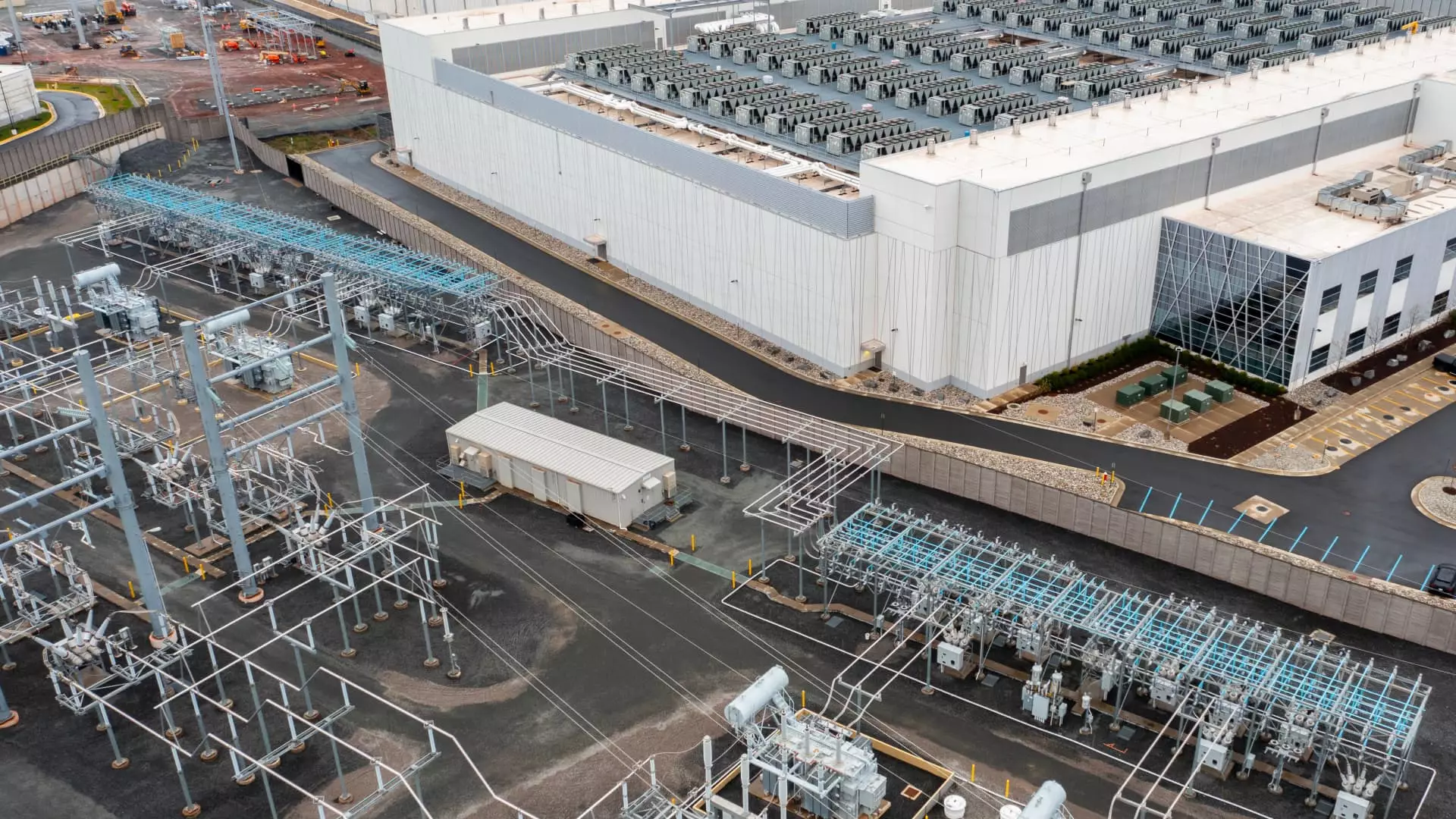The intersection of nuclear energy and technology companies establishing substantial infrastructures like data centers has recently been tested by regulatory hurdles. The failure of a request for enhanced power supply to an Amazon data center from the Susquehanna nuclear plant in Pennsylvania highlights the complexities and constraints straining the burgeoning relationship between these industries. This article delves into the implications of the Federal Energy Regulatory Commission (FERC) decision, its potential impact on energy policy, and how it could redefine the dynamics of economic growth within affected states.
On a pivotal Friday, the FERC turned down a petition that sought to increase the available power from 300 megawatts to 480 megawatts for an Amazon data center campus linked to Talen Energy’s Susquehanna plant. Such a direct power deal marked a pioneering effort within the energy sector and showcased the industry’s intent to adapt to the relentless energy demand presented by data centers—especially those involved in artificial intelligence (AI) and cloud computing.
Emphasizing the significance of the denial, FERC Commissioner Mark Christie indicated that increasing power allocation was critical for both grid reliability and consumer cost management. This suggests a broader narrative about energy distribution challenges, indicating a hesitancy within regulatory bodies to fundamentally reshape energy contracts, especially those involving advanced technology companies.
The immediate repercussions of FERC’s decision were felt in the stock market, where Talen Energy’s shares dropped more than 5% in premarket trading. In solidarity with Talen’s struggles, the shares of Constellation Energy and Vistra Corp. followed suit, experiencing declines of over 11% and nearly 3%, respectively. Investors had anticipated similar agreements from these companies, showcasing just how interconnected stock performance and regulatory decisions can be in this sector.
Talen’s subsequent statement expressed concern about the chilling effects that such regulatory decisions may induce within the landscape of state economics—particularly for states like Pennsylvania, Ohio, and New Jersey. This highlights the broader conversation surrounding regulatory frameworks and their roles in guiding or impeding innovation and growth in local economies reliant on energy-intensive industries.
Nuclear Power as a Sustainable Solution
Despite the FERC’s decision, it remains crucial to recognize the inexorable rise in energy demands from data centers centered on AI and cloud technologies. Nuclear power stands out as a potential solution for this growing energy appetite due to its reliability and zero carbon emissions during operation. Both Constellation Energy and Vistra have touted an interest in partnerships with tech firms, echoing a palpable demand for fossil-free energy sources that align with sustainability objectives.
The conversation remains pertinent in light of performance metrics; Vistra has notably shown exceptional stock performance, tripling this year as tech companies lean heavily on its providing energy solutions. Similarly, Constellation’s impressive growth amidst the backdrop of potentially revolutionizing its power generation projects suggests a strong market outlook for the integration of technology and energy—a mutualistic relationship that is, however, constantly at the mercy of regulatory environments.
As the tech industry continues to evolve, its energy needs will likely stretch far beyond current projections. The FERC’s decision poses an obstacle, not just to Amazon and Talen but signals a test for the entire industry about balancing innovation with regulatory caution. Economic growth and job creation prospects in regions rich in nuclear resource potential are yet to be fully realized if similar hurdles materialize for other impending technologies.
Ultimately, finding a way forward may require more than just compromises between energy producers and tech companies; it will necessitate a reevaluation of regulatory frameworks to effectively foster partnerships that serve mutual interests in technology advancement and sustainable energy sourcing. As energy challenges burgeon, the intersection between nuclear power and tech industries demands attentive dialogue that harmonizes ambition with responsibility.
While the rejection by FERC has cast a shadow over the future of energy partnerships in technology, it also highlights the pressing need for dialogue surrounding the potential for nuclear as a reliable energy source amid growing global demands. Balancing economic opportunity with the regulatory landscape is essential for paving the way for a sustainable and prosperous future in energy consumption.


Leave a Reply